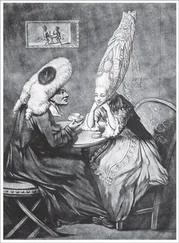Bill Bryson - Notes from a small Island
Здесь есть возможность читать онлайн «Bill Bryson - Notes from a small Island» весь текст электронной книги совершенно бесплатно (целиком полную версию без сокращений). В некоторых случаях можно слушать аудио, скачать через торрент в формате fb2 и присутствует краткое содержание. Жанр: Современная проза, на английском языке. Описание произведения, (предисловие) а так же отзывы посетителей доступны на портале библиотеки ЛибКат.
- Название:Notes from a small Island
- Автор:
- Жанр:
- Год:неизвестен
- ISBN:нет данных
- Рейтинг книги:4 / 5. Голосов: 2
-
Избранное:Добавить в избранное
- Отзывы:
-
Ваша оценка:
- 80
- 1
- 2
- 3
- 4
- 5
Notes from a small Island: краткое содержание, описание и аннотация
Предлагаем к чтению аннотацию, описание, краткое содержание или предисловие (зависит от того, что написал сам автор книги «Notes from a small Island»). Если вы не нашли необходимую информацию о книге — напишите в комментариях, мы постараемся отыскать её.
Notes from a small Island — читать онлайн бесплатно полную книгу (весь текст) целиком
Ниже представлен текст книги, разбитый по страницам. Система сохранения места последней прочитанной страницы, позволяет с удобством читать онлайн бесплатно книгу «Notes from a small Island», без необходимости каждый раз заново искать на чём Вы остановились. Поставьте закладку, и сможете в любой момент перейти на страницу, на которой закончили чтение.
Интервал:
Закладка:
Thus it was that I found myself late the next morning wandering a back lane outside the Cambridgeshire hamlet of Reach looking for the dike's start. It was a rotten day. A steamroom fog filled the air and visibility was next to nothing. The dike rose up suddenly, almost alarmingly, out of the soupy greyness, and I clambered up to its top. It is a strange and brooding eminence, particularly in thick fog and out of season. Built during the darkest of the Dark Ages some 1,300 years ago, the Devil's Dyke is an earthen embankment that rises up to sixty feet above the surrounding landscape and runs in a straight line for 7Vi miles between Reach and Ditton Green. Disappointingly, noone knows why it is called the Devil's Dyke. The name isn't recorded before the sixteenth century. Standing as it does in the midst of flat fenlands, it has a kind of menacing, palpably ancient air, but also a feeling of monumental folly. It required an immense commitment of labour to construct, but it didn't take a whole lot of military genius to realize that all an invading army had to do was go around it, which is what all of them did, and within no time at all the Devil's Dyke had ceased to have any use at all except to show people in the fen country what it felt like to be sixty feet high.Still, it offers an agreeable, easy stroll along its grassy summit, and on this bleak morning I had it all to myself. Not until I reached the approximate midway point did I begin to see other people, mostly exercising their dogs on the broad sward of Newmarket Heath and looking ghostly in the unearthly fog. The dike runs right through the grounds of Newmarket Racecourse, which I thought rather jolly though I couldn't see a damn thing, and thence on through prosperouslooking horse country. Gradually the fog began to thin and between the skeletal trees I glimpsed a succession of large stud farms, each with a whitefenced paddock, a big house and a sprawl of ornate stable blocks with cupolas and weathervanes that made them look uncannily like a modern Asda or Tesco's. Pleasant as it was to have an easy, flat ramble along such a welldefined route, it was also a trifle dull. I walked for a couple of hours without passing anyone and then abruptly the dike ended in a field outside Ditton Green, and I was left standing there with an unsettling sense of anticlimax. It was only a little after two in the afternoon and I was nowhere near tired. I knew that Ditton had no railway station, but I had presumed I could catch a bus to Cambridge, and indeed I discovered in the local bus shelter that I could if I waited two days. So I trudged four miles to Newmarket down a busy road, had an idle look around there, then caught a train to Cambridge.
One of the sustaining pleasures of a long tramp in the country, particularly out of season, is the thought that eventually you will find a room in a snug hostelry, have a series of drinks before a blazing fire and then dine on hearty viands to which the day's exercise and fresh air have clearly entitled you. But I arrived in Cambridge feeling fresh and untaxed and entitled to nothing. Worse still, presuming that the walk would be more challenging than it was and that I might arrive late, I had booked a room in the University Arms Hotel in the expectation that it would have the requisite blazing fire, the hearty viands and something of the air of a senior common room. In fact, as I discovered to my quiet dismay, it was an overpriced modern block and my gloomy room was lamentably at odds with its description in my guidebook.
I had a listless look round the city. Now Cambridge, I know, is a very fine city and a great place for names Christ's Pieces alone takes some beating but I couldn't make myself warm to it this day. The central market was a tatty mess, there seemed a discouraging surfeit of concrete structures around the centre, and by late afternoon everything was drenched in a cheerless drizzle. I.ended up nosing around in secondhand bookshops. I was looking for nothing in particular, but in one I came across an illustrated history of Selfridges Department Store and I took it eagerly from the shelf, hoping for an explanation of how Highcliffe Castle had fallen into dereliction and, better still, for prurient anecdotes involving Selfridge and the libidinous Dolly Sisters.
Alas, this appeared to be a sanitized version of the Selfridge story. I found only a single passing mention of the Dollys, which implied that they were just a couple of innocent waifs in whom Selfridge took an avuncular interest. Of Selfridge's precipitate decline from rectitude there was scarcely a mention and of Highcliffe Castle nothing at all. So I put the book back and, realizing that somehow everything I did this day would be touched with disappointment, I went and had a pint of beer in an empty pub, a mediocre dinner in an Indian restaurant, a lonely walk in the rain, and finally retired to my room, where I discovered that there was nothing at all of note on television, and realized that I had left my walkingstick in Newmarket.
I retired with a book only to discover that the bedside lightbulb was gone not burned out but gone and passed the remaining hours of the evening lying inert on the bed and watching a Cagney and Lacey rerun, partly out of a curious interest to detect what it is about this ancient programme that so besots the controller of BBC1 (only possible answer: Sharon Gless's chest) and partly because of its guaranteed narcotic effect. I fell asleep with my glasses on and awoke at some indeterminate hour to find the TV screen a frantic, noisy blizzard. I got up to switch it off, tripped heavily over some unyielding object and managed the interesting trick of turning off the TV with my head. Curious to know how I had managed this, in case I decided to make it a party piece, I discovered that the offending object was my stick, which was not in Newmarket after all, but on the floor, lodged between a chair and a bed leg.
Well, that's one good thing, I thought and, gracing my nostrils with two walrus tusks of tissue to stanch a sudden flow of blood, climbed wearily back into bed.
CHAPTER FIFTEEN
I WENT TO RETFORD. I CAN'T EXPLAIN IT. THROUGH MY MORNING ablutions, the gentle removal of the tissues from my swollen nostrils, through breakfast and checking out of the hotel and the long walk to the station, it was my solemn and dutiful intention to go to Norwich and thence to Lincoln. But for some reason, as soon as I entered the station and spied a British Rail map on the wall, I had a strange, sudden hankering to go somewhere entirely new, and Retford jumped out at me.
For the past seven years, I had passed through Retford every time I took a train between Leeds and London. It was one of the main stops on the east coast line, but I had never seen anyone get on or anyone get off there. On my British Rail route map, Retford was accorded capital letters, giving it equal typographical standing with Liverpool, Leicester, Nottingham, Glasgow and all the other substantial communities of Britain, and yet I knew nothing about it. In fact, I don't believe I had even heard of it before I saw its lonely station for the first time from the train. More than that, I had never met anyone who had been there or knew anything about it. My AA Book of British Towns included lavish and kindly descriptions of every obscure community you could think to name Kirriemuir, Knutsford, Prestonpans, Swadlincote, Bridge of Allan, Duns, Forfar, Wigtown but of Retford it maintained a stern and mysterious silence. Clearly, it was time to check this place out.
So I caught a train to Peterborough and then another on the main line north. I hadn't slept particularly well on account of an unsettling dream involving Cagney and Lacey and the discovery that I hadn't filed a US tax return since 1975 (they threatened to turn me over to that guy who takes his shirt off in the opening credits, so you can imagine the state of my bedclothes when I awoke with a gasp about dawn), and I was looking forward to one of those quiet, soothing journeys of the kind that British Rail are always promising the ones where your shoes turn into slippers and Leon Redbone sings you to sleep.
Читать дальшеИнтервал:
Закладка:
Похожие книги на «Notes from a small Island»
Представляем Вашему вниманию похожие книги на «Notes from a small Island» списком для выбора. Мы отобрали схожую по названию и смыслу литературу в надежде предоставить читателям больше вариантов отыскать новые, интересные, ещё непрочитанные произведения.
Обсуждение, отзывы о книге «Notes from a small Island» и просто собственные мнения читателей. Оставьте ваши комментарии, напишите, что Вы думаете о произведении, его смысле или главных героях. Укажите что конкретно понравилось, а что нет, и почему Вы так считаете.












